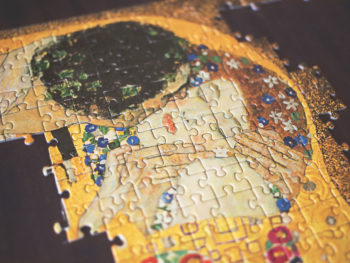When I was a new mom, I read that children go through periods of equilibrium and disequilibrium that last about six months each.
I kept hoping my daughter was nearing the end of a period of disequilibrium. After all, my sweet girl had been pushing all my buttons for months with expert grace, and she was about to have her birthday.
The only problem with that theory is that instead of things getting better after we celebrated, they got worse.
Imagine her writhing on the floor the other day while I held her ankles so she didn’t kick or hit me, hurt her sister, or break something. Also imagine me saying calmly, ridiculously, “It looks like you’re feeling angry right now.”
One does not feel successful as a parent while uttering calm banalities as a child tries her best to hurt you.
Of course, the same day, at bedtime, I moved my hand off her back while I lay next to her in bed, so I wouldn’t keep her from falling asleep.
“Mama,” she said, “Would you put your hand back? I like it.”
Oh dear girl, yes. Forever and ever, yes.
There in bed, struck by her sweetness, I considered also our struggle. I realized I had been looking at our period of disequilibrium as something to endure. As a time that—if I waited long enough—would go away. As such, I was offended when it lasted longer than I’d bargained for.
I realized that endurance was not working.
Or, at least, my definition of endurance was not working.
I realized I had come to the point where I wasn’t enjoying my child. Endurance, in my case, had come to mean a kind of cold tolerance….
I’m talking about the real meaning of endurance–both in parenting, and in faith–over at The Mudroom today. Won’t you join me there?
Image credit: mrhayata













 Waiting instead of doing: Feeling something is optional
Waiting instead of doing: Feeling something is optional